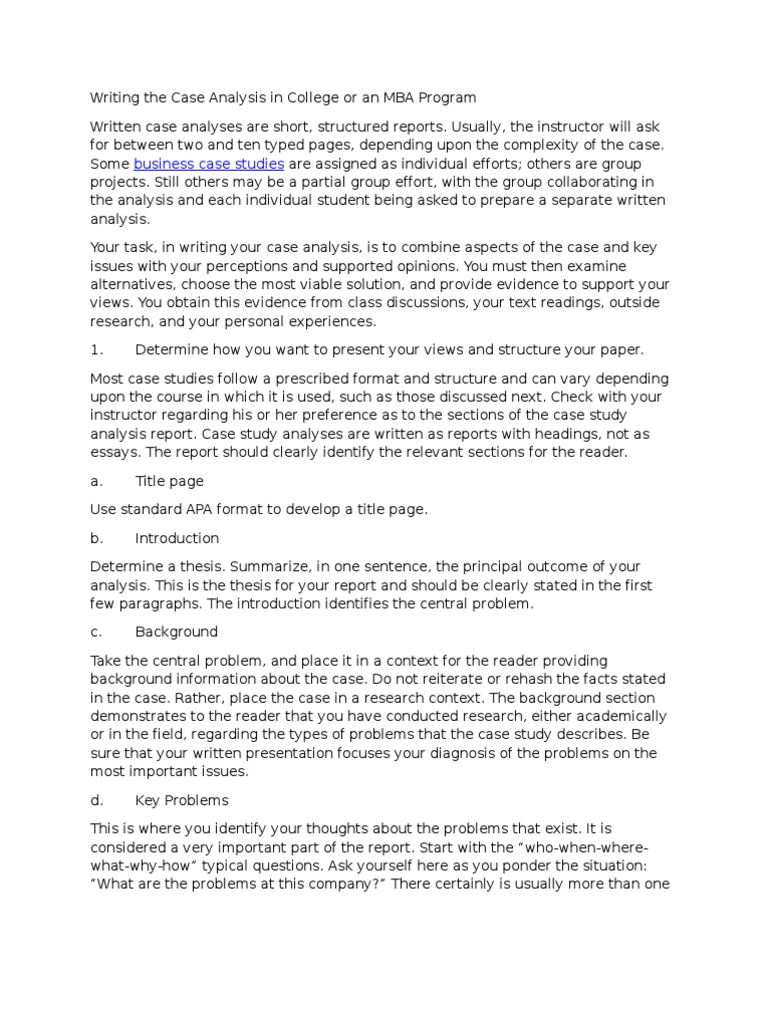
· There are two sections of a research paper depending on what style is being written. The sections are usually straightforward commentary of exactly what the writer observed and found during the actual research. It is important to include only the important findings, and avoid too much information that can bury the exact meaning of the context · Conduct your analysis. Create a heading for the analysis section of your paper. Specify the criteria you looked for in the data. For instance, a research paper analyzing the possibility of life on other planets may look for the weight of evidence supporting a particular theory, or the scientific validity of particular publications Introduce the research paper and theory you will analyze in your critical analysis. You can mention the title, author, the topic/ argument or thesis to be analyzed. This forms your thesis statement on which the whole critical analysis will be based. Keep it clear and concise
How to Write the Analysis Section of My Research Paper | The Classroom
Data collection is only the beginning of the research paper writing process. Writing up the analysis is the bulk of the project. Locate and collect documents. Make multiple photocopies of all relevant print materials. Label and store these in a way that provides easy access.
Conduct your analysis. Create a heading for the analysis section of your paper. Specify the criteria you looked for in the data. For instance, a research paper analyzing the possibility of life on other planets may look for the weight of evidence supporting a particular theory, or the scientific validity of particular publications. Write about the patterns you found, and note the number of instances a particular idea emerged during analysis.
For example, an analysis of Native American cultures may look for similarities between spiritual beliefs, gender roles or agricultural techniques. Researchers frequently repeat the process to find patterns that were missed during the first analysis. You can also write about your comparative analysis, if you did one. It is common to ask a colleague to perform the process and compare their findings with yours. Summarize your analysis in a paragraph or two, research paper analysis.
Write the transition for the conclusions section of your paper. Use compare and contrast language, research paper analysis. Indicate where there are similarities and differences in the data through the use of phrases like ''in contrast'' and ''similarly, research paper analysis.
Adam Simpson is an author and blogger who started writing professionally in and has written for OneStopEnglish and other Web sites.
He has chapters in the volumes "Teaching research paper analysis learning vocabulary in another language" and "Educational technology in the Arabian gulf," among others. Simpson attended the University of Central Lancashire where he earned a B. in international management, research paper analysis.
length { this. removeChild sources[0] ; } research paper analysis { this. querySelectorAll 'source' ], arguments[0]. How to Write the Analysis Section of My Research Paper. Tip Use compare and contrast language. References Purdue University Online Writing Lab research paper analysis Analysis.
HOW TO ANALYZE JOURNAL ARTICLES: Pivot Article Analysis
, time: 4:03Research Paper Analysis: Quick How-to Guide & Example []

· There are two sections of a research paper depending on what style is being written. The sections are usually straightforward commentary of exactly what the writer observed and found during the actual research. It is important to include only the important findings, and avoid too much information that can bury the exact meaning of the context · Conduct your analysis. Create a heading for the analysis section of your paper. Specify the criteria you looked for in the data. For instance, a research paper analyzing the possibility of life on other planets may look for the weight of evidence supporting a particular theory, or the scientific validity of particular publications Introduce the research paper and theory you will analyze in your critical analysis. You can mention the title, author, the topic/ argument or thesis to be analyzed. This forms your thesis statement on which the whole critical analysis will be based. Keep it clear and concise
No comments:
Post a Comment